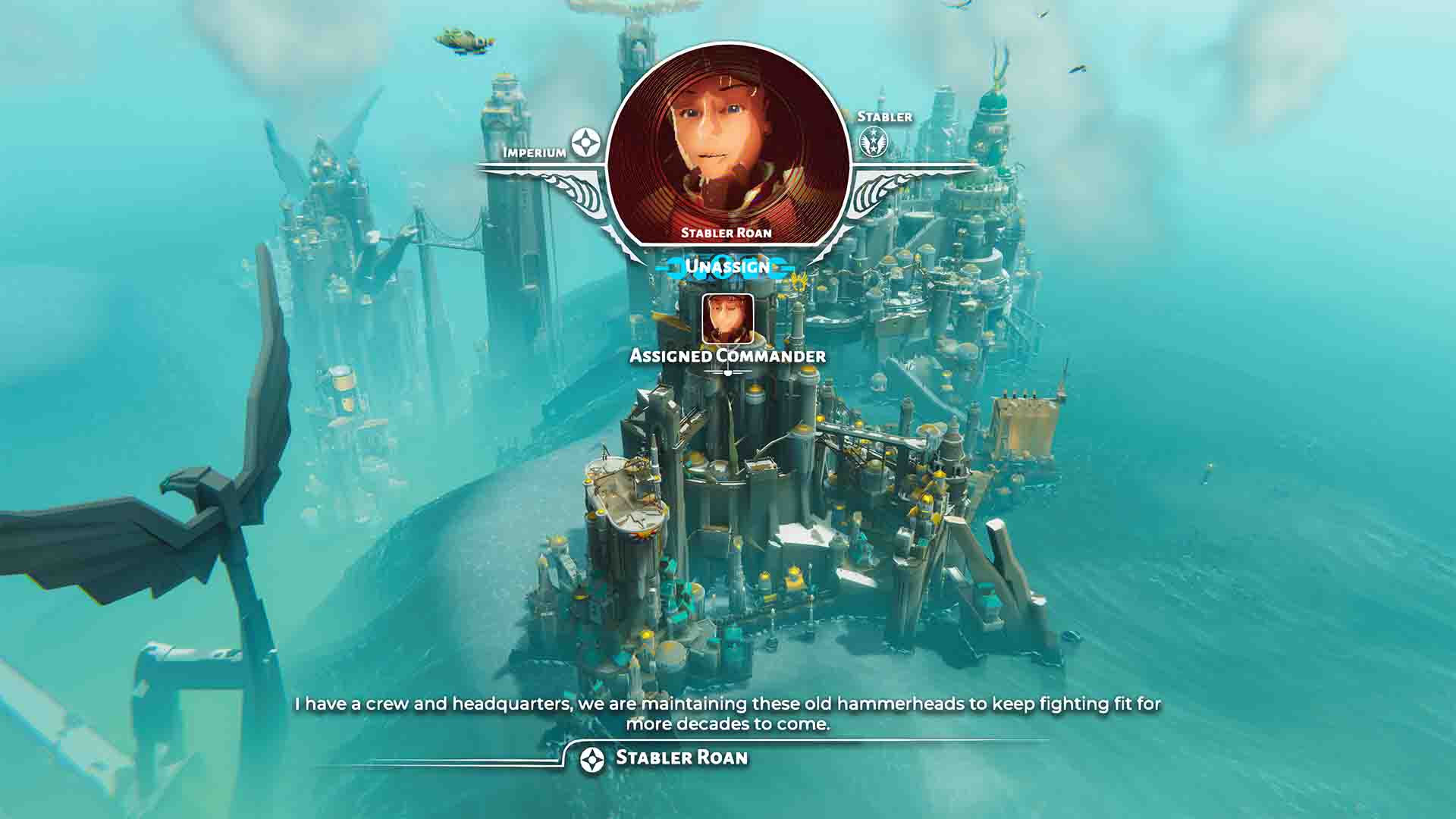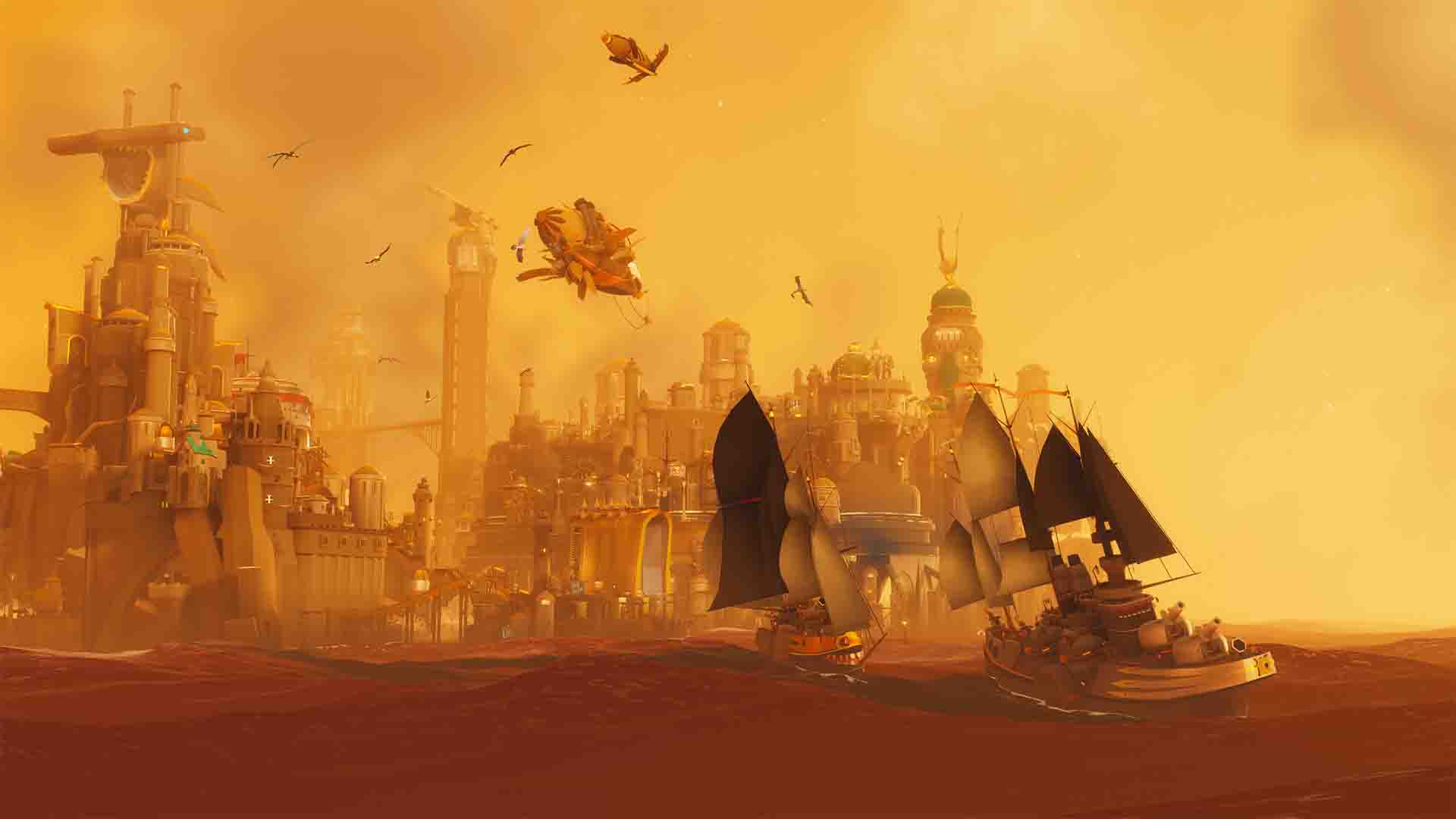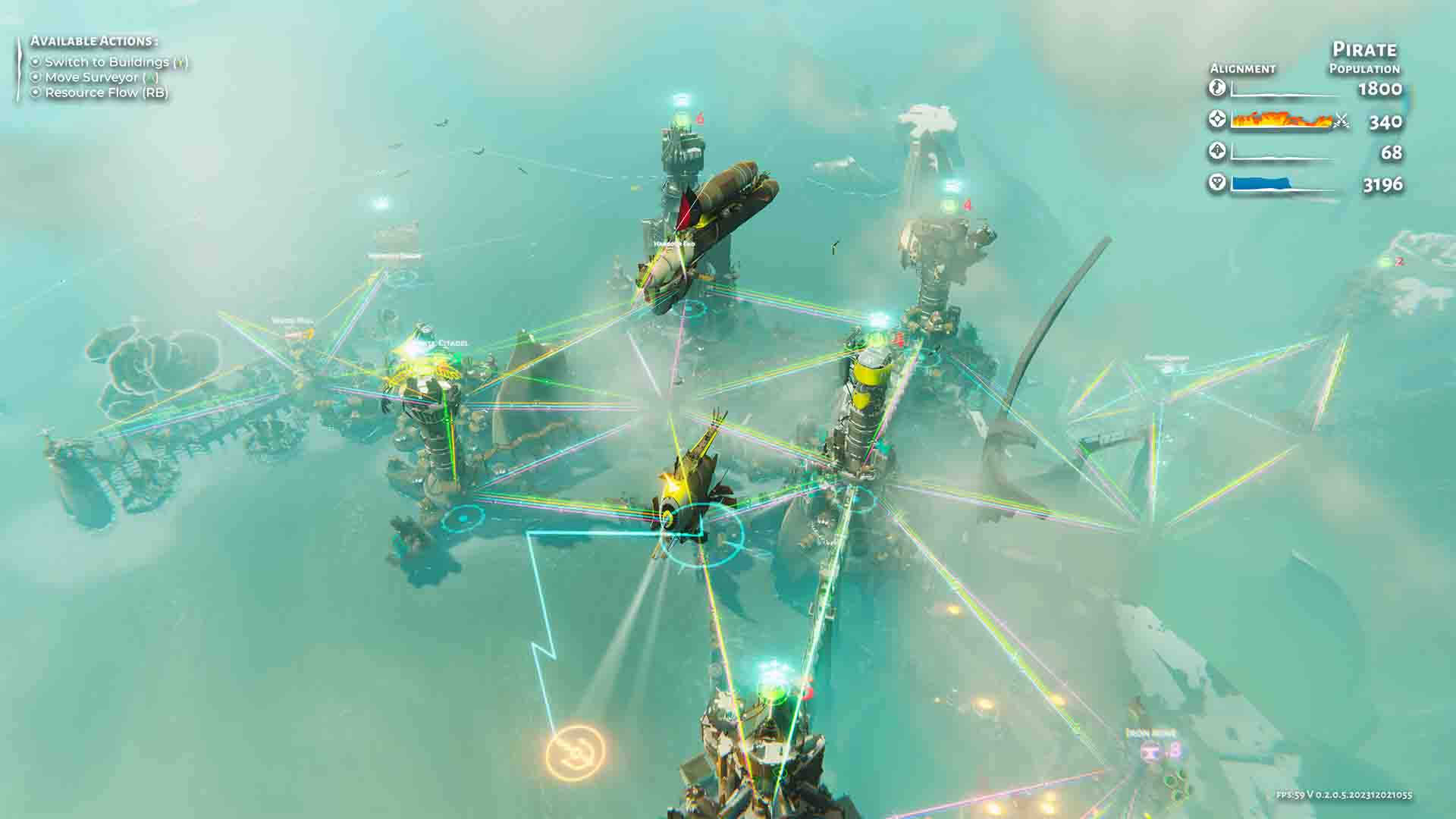Bulwark: Falconeer Chronicles interview with Tomas Salah: “I just make what feels fun”
It’s always nice putting a face to a name. Having played Tomas Sala’s previous game, one that helped launch the Xbox Series X, he’s every bit the person I hoped he was: honest, open, refreshing, passionate, and interesting. And the way that the second game in the Falconeer Universe came about, Bulwark: Falconeer Chronicles is a great place to start, when talking to him just shy of a month away from the game’s release.
Sala’s and his wife, sat down and realised that after Falconeer was out, he needed to deliver a new game in three years, so she asked him “what did you enjoy most?” and “what gives you the least amount of stress?”.
His answer? “Making all the little towns in the little, you know, castles or fortresses. It’s relaxing. I just like making little castles, you know, it’s like making a diary.” his wife said to him: “Then that’s your game”, and here we are.
“So that’s where the idea came from”, he tells me, “It’s just, you know, what did I enjoy most? And I was in quite a good place after the following year, after the dust settled and there was financial stability, so I thought, okay, we’ll do that”.

Sala explains where we are, narratively, now. “So it’s like 40 years later after a big war, everybody sort of figured out that that’s not the way forward. Lots of people are gone and they have to rebuild”. He has a philosophy, too, it seems, explaining: “When I design stuff, it’s never flat”, and boy is that true. Even from the demo, you can see that Bulwark gives you the tools to build, and then sets you loose. There’s very little restriction as to where you can build, and soon you’ll have a citadel like no other, stretching from the tallest mountains into the sea itself.
“The difference between me and a big team is when you say, we’re going to make a city builder and you have 15 designers in the room, you’re going to have to come up with a very structured way for everybody to work”, he explains, “You know, you’re going to make art, okay? I’m going to do the programming. Let’s decide, okay, we’re going to make houses that have doors and connecting at this distance, a road works like this”.
“Your houses will be on the grid, left to right of the road or some other structure to work with, because you need all these people to work together. And then you get, you know, the classic builder colony scheme for, you know, grand strategy type of game. I can’t do it”, and so his solution seems simple: “So I just make what feels fun and my fun is being as chaotic as possible”.
He continues: “It’s Bob Ross. It’s, you know, it’s happy accidents. It’s the entire philosophy of the game. After a while for some people coming in with that problem solving mindset and totally wanting that, that’s their conflict game though, they get a little upset for a little bit, but after a while you find it’s really relaxing. it’s both relaxing and just like sitting around watching the boats go in and, you know, looking at what my city’s becoming”, adding “this is a game about being in the world”.

Everything in Bulwark: Falconeer Chronicles seems designed to never rub up against the player. Over the next hour Sala shows me how progression works, building, and a whole lot more. The game never constrains you by saying you don’t have enough of something: if you find wood, you have wood, and can build wooden things. The only limitation seems to be based on travel lengths, which is barely a limit at all. If you place some foundations, people will build houses, the world will evolve. If you want to upgrade from wooden to stone buildings, find stone, and you have stone. It’s simple, yet elegant.
Sala breaks it down, saying: “So the industry grows everything. Every solution to the game is always going back to build something”. He explains that he wants to channel that feeling that you have when you are starting out in the big city building game, and that he’s not into the “grind” of games any more: “I find that I don’t have the taste for it anymore, so when you go into something like a city builder or a grand strategy game or something, I want to be stuck in that first part where I’m in the fantasy”.
“It’s as casual as you can get, but it’s also what I want is people to keep building and exploring how to build and what they can build in the landscape”, he says, “So the solution is always build some more”. But it’s not an empty game, and he shows me trade routes, decisions that will affect your settlements, combat, and the save game of a player who has built something that is, simply put, astonishing, and is apparently still a work in progress.

Sala is an industry veteran these days, having been programming for twenty years, and he’s someone who has worked in big studios and doesn’t want to do that any more. He also seems to have more ideas for what he’s going to do next, and they all sound fascinating, though not without risk, though he’d far rather be known as the guy who does something different, saying: “It might be weird and might not hold to convention. It’s definitely not instant, you know, for everybody, but it’s always fucking original. It’s always beautiful, and it’s always got a sense of emotion and place”.
I asked him what his goals were, ultimately, and he explained: “So the dream is just to make enough money that I can start a pension. I don’t have a pension. Uh, I can make another game. And perhaps the goal would be great if there’s enough money that we can move and have the same space, which is not ridiculous”. Feedback on Bulwark: Falconeer Chronicles is good so far, though at the time of speaking to Sala it wasn’t in the top 100 wishlisted games, and he’s a realist, saying “You know, I like to think I’m punching above my weight”.
And honestly, I could have spent all day talking to Tomas about his game, life, and anything else. We finished up by talking about how odd the word Bulwark sounds in an English accent, how some people use Falconeer when they mean Falconer, and how he’s helped destroy the language in his own way. I can’t honestly remember the last time I came away wishing someone as much success as I do for Sala and Bulwark. I should have asked a million different questions, but instead I came away feeling energised and, honestly, a bit inspired.
Bulwark: Falconeer Chronicles is coming to PC and consoles on March 26th, and a demo is available now.





